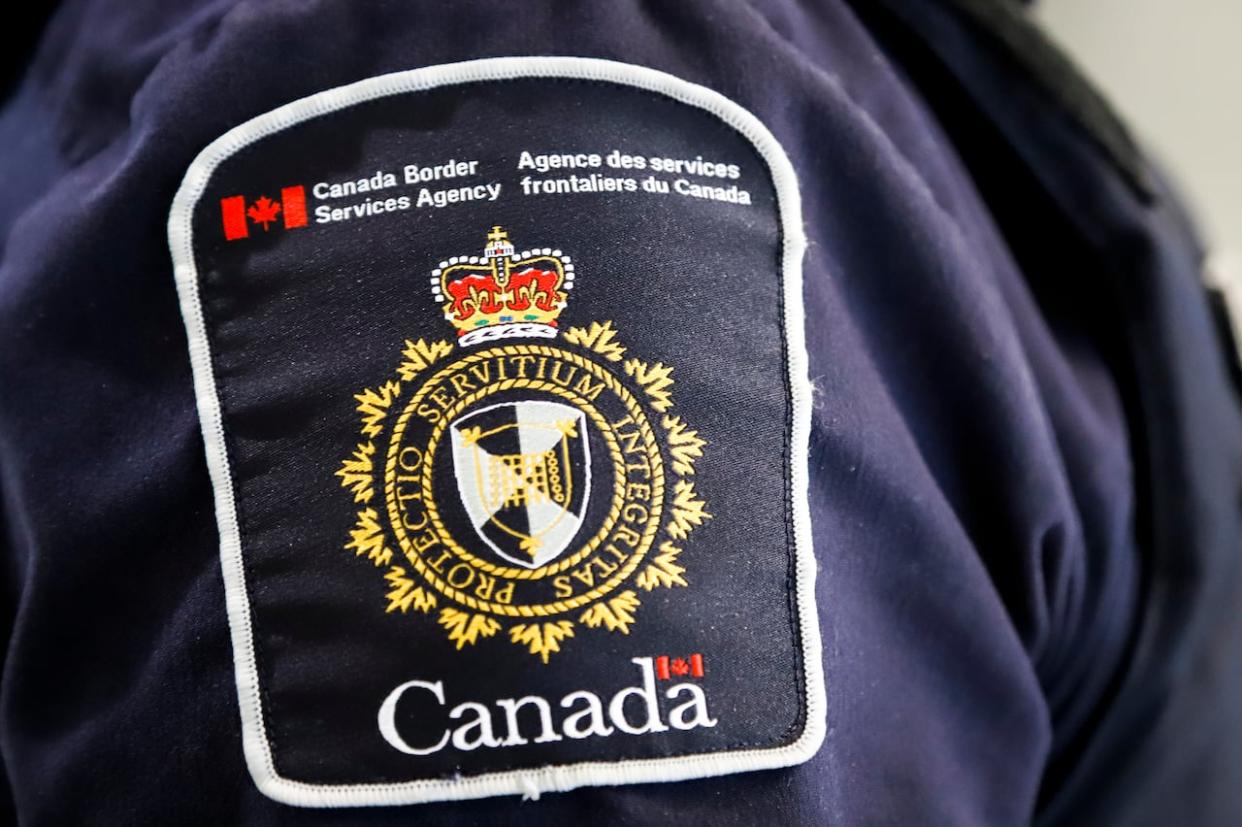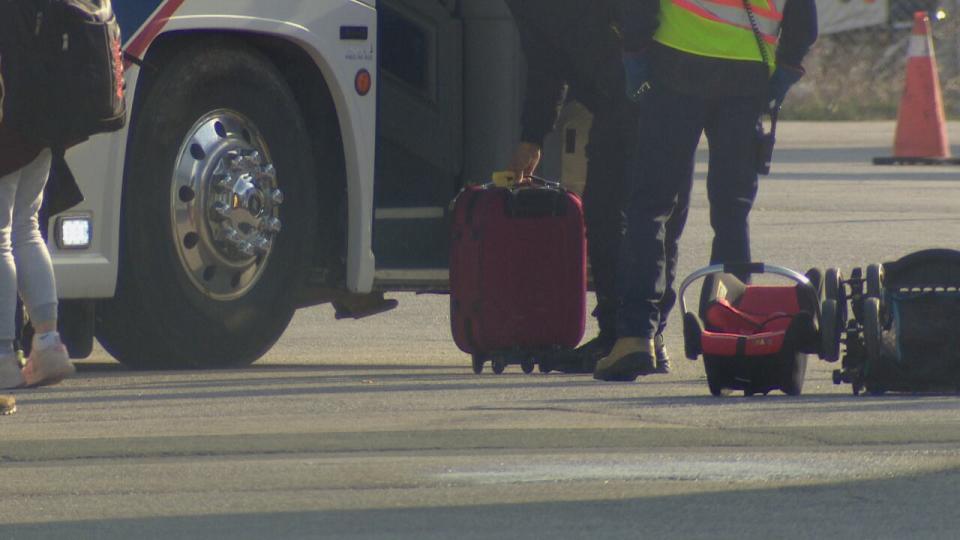New Brunswick to stop holding immigration detainees in provincial jails

New Brunswick will join six other provinces next month in terminating an agreement with the Canada Border Services Agency that allows asylum seekers and other immigrants to be detained in provincial jails.
According to the agency, there is one detainee in a jail in New Brunswick right now, but it could not disclose why the person was being held under the provisions of the Privacy Act.
In a statement, the agency said that countrywide, as of Jan. 8, "there are 39 individuals held in various provincial correctional facilities or local police agency holding cells." And it provided this breakdown of the reasoning:
Unlikely to appear: 21.
Danger and unlikely to appear: 16.
Examination (either to complete an exam and/or establish identify): one.
Suspected of serious criminality or criminality or organized criminality: one.
Aaron McCrorie, vice-president of intelligence and enforcement at Canada Border Services, said in an interview there are three criteria governing detention — questions around identity, flight risk and threat to public safety.
"Our detention applies across the entire immigration spectrum, it's not just refugees, it's not just people applying for asylum. It's anybody in the immigration continuum," he said.
"We do not detain asylum seekers at all unless we don't know who they are, unless they pose a risk to the public."
'Demoralizing': refugee lawyer
Olivia Huynh, a Moncton-based lawyer who runs the New Brunswick refugee clinic, said she has seen the traumatic impact of holding immigration detainees in provincial jails.

People who work with refugees say that kind of experience can shift a newcomer's perception of Canada. (CBC)
Referred to as "administrative detentions" by Huynh, a person can be held in a correctional facility when there aren't any federal immigration detention centres available, such as in New Brunswick.
"Because it's an administrative detention and it's an immigration detention, no criminal charges have been laid against the person, and they're typically not accused or oftentimes been suspected of committing a crime," she said.
Huynh said that people from countries where it's more difficult to obtain an identity document, countries where governments have collapsed, for example, can be detained for this reason.
"Lack of identity documentation can be a reason for detention. Being perceived as a flight risk may be due to lack of establishment in the community. It could be a reason for detention," she said.
Huynh said that the experience to a newcomer can shift their perception of Canada.

Moncton-based lawyer Olivia Huynh says the process can be traumatic for newcomers, particularly those fleeing persecution. (Submitted by Olivia Huynh)
"I think it's particularly demoralizing for people, and it's particularly traumatic to finally arrive in this place that presents itself as a humanitarian heaven and then to have your human rights violated and to be subjected to this kind of treatment."
She said a person in these circumstances could be held for a matter of weeks or, in more serious cases, months.
"This is one of the reasons that it's very distressing and very traumatic for the people involved because they often don't know when they're going to be released."

Aaron McCrorie of the border services agency says as to what will happen to any detainees still held in provincial jails by the end of next month, solutions will be case by case. (Submitted by Canada Border Services Agency)
McCrorie said only a small percentage of detainees are held in jails.
"So there's about 13,000 people right now in the country that could be subject to detention [and] 98 per cent of them, about 12,000 or so, are in what we call an 'alternative to detention,'" he said.
The agency's alternative to detention program is similar to parole, he said, with electronic monitoring and reporting conditions.
The decision by the province to discontinue the practice takes a resource away from the border service, McCrorie said.
"The lack of access to provincial jails or provincial facilities for high-risk detainees has removed an important tool from our toolbox."
Former racism commissioner 'thrilled' by decision
Manju Varma, the province's former commissioner on systemic racism, who recommended the step in her final report in 2022, praised the decision.

Manju Varma says that the practice of imprisoning migrants on administrative issues is an infringement on human rights. (Supplied by Government of New Brunswick)
"I was thrilled to see that New Brunswick has decided to end that contract," Varma said.
"[The decision] is significant because anytime refugees come to our country, regardless of what province they come to, they're coming to us in a fragile state," she said.
Canada Border Services said in an emailed statement that New Brunswick gave notice on March 30, 2023, it would terminate the contract in 2024.
CBC News began asking the provincial government last Thursday for comment on the termination and requested an interview. No one was made available, but a spokesperson for the Department of Justice and Public Safety confirmed there is only one person being detained right now.
The agency pays provinces a per diem to hold detainees at correctional facilities. In the 2022-23 fiscal year, the agency said the per diem cost for detainees in provincial jails ranged from $252 to $615.
What happens next?
As for what will happen to any detainees held in provincial jails by the end of February, McCrorie says solutions will be case by case.
"So for example British Columbia, Alberta and Saskatchewan have already come to an end. And so what we had to do was move those individuals out of the provincial facility. In many cases that meant they were already on a track to be removed from the country," McCrorie said.
"In other instances, where perhaps we weren't quite ready to move them from the country because we needed to get travel documents, we moved them into one of our three immigration holding centres."
The holding centres are in Laval, Que., Toronto, and Surrey, B.C.
Quebec terminated its contract in a similar timeframe as New Brunswick and was slated to cease holding detainees on Dec. 31 but extended the deadline to June 30.
"They recognize the challenge that we're facing in terms of building our own capacity to hold high-risk detainees," McCrorie said.
He said the agency has not sought the same extension in New Brunswick.
Agreements with Manitoba, Ontario and Prince Edward Island are set to terminate in April, June and September, respectively. Newfoundland and Labrador doesn't have an agreement with the agency to hold detainees in provincial jails.

